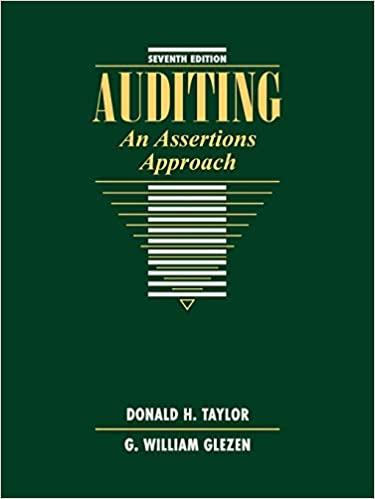Question
Bonds that may be exchanged for common stock at the option of the bondholders are called a. options. b. stock bonds. c. convertible bonds. d.
Bonds that may be exchanged for common stock at the option of the bondholders are called
a. options.
b. stock bonds.
c. convertible bonds.
d. callable bonds.
Secured bonds are bonds that
a. are in the possession of a bank.
b. are registered in the name of the owner.
c. have specific assets of the issuer pledged as collateral.
d. have detachable interest coupons.
Which of the following is not an advantage of issuing bonds instead of common stock?
a. Stockholder control is not affected.
b. Earnings per share on common stock may be lower.
c. Income to common shareholders may increase.
d. Tax savings result.
A $1,000 face value bond with a quoted price of 97 is selling for
a. $97
b. $907.
c. $970.
d. $1,000.
A bond with a face value of $200,000 and a quoted price of 102 has a selling price of
a. $240,225.
b. $204,025.
c. $200,225.
d. $204,250.
Step by Step Solution
There are 3 Steps involved in it
Step: 1

Get Instant Access to Expert-Tailored Solutions
See step-by-step solutions with expert insights and AI powered tools for academic success
Step: 2

Step: 3

Ace Your Homework with AI
Get the answers you need in no time with our AI-driven, step-by-step assistance
Get Started


